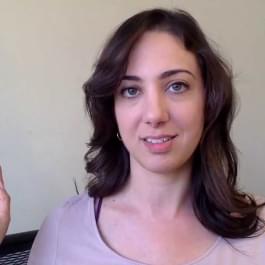
Julia Galef on how to argue better and change your mind more
At least in politics, this is an era of awful arguments. Arguments made in bad faith. Arguments in which no one, on either side, is willing to change their mind. Arguments where the points being made do not describe, or influence, the positions being held. Arguments that leave everyone dumber, angrier, sadder. Which is why I wanted to talk to Julia Galef this week. Julia is the host of the Rationally Speaking podcast, a co-founder of the Center for Applied Rationality, and the creator of the Update Project, which maps out arguments to make it easier for people to disagree clearly and productively. Her work focuses on how we think and argue, as well as the cognitive biases and traps that keep us from hearing what we're really saying, hearing what others are really saying, and preferring answers that make us feel good to answers that are true. I first met her at a Vox Conversation conference, where she ran a session helping people learn to change their minds, and it's struck me since then that more of us could probably use that training. In this episode, Julia and I talk about what she's learned about thinking more clearly and arguing better, as well as my concerns that the traditional paths toward a better discourse open up new traps of their own. (As you'll hear, I find it very easy to get lost in all the ways debate and cognition can go awry.) We talk about signaling, about motivated reasoning, about probabilistic debating, about which identities help us find truth, and about how to make online arguments less terrible. Enjoy! Books: Language, Truth, and Logic by A.J. Ayer Seeing Like a State by James Scott The Robot's Rebellion by Keith Stanovich Learn more about your ad choices. Visit podcastchoices.com/adchoices
From "The Gray Area with Sean Illing"




Comments
Add comment Feedback